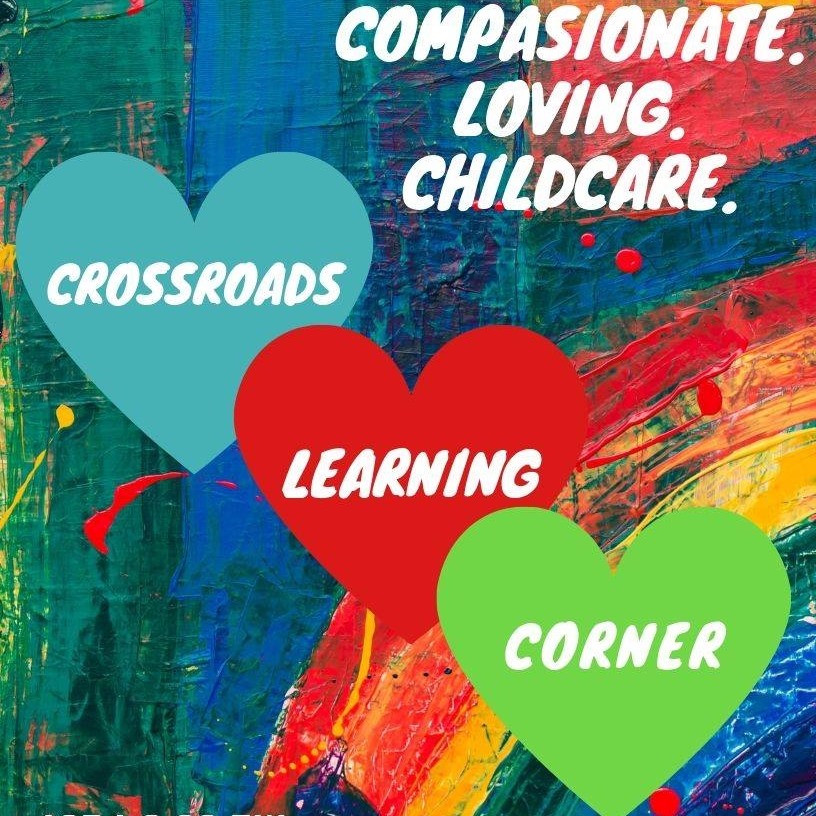In today's rapidly evolving world, learning crossroads has become a pivotal concept for individuals seeking to enhance their knowledge and skills. Whether you're a student, professional, or lifelong learner, understanding how to navigate these crossroads is essential for personal and professional growth. The concept of learning crossroads refers to the critical junctures where individuals must make decisions about their educational and career paths. These moments can be both challenging and rewarding, requiring careful consideration and planning.
As we delve deeper into this topic, we will explore the various aspects of learning crossroads, including the importance of lifelong learning, strategies for effective decision-making, and resources available to support learners at every stage of their journey. By understanding these elements, individuals can make informed decisions that align with their goals and aspirations.
This article aims to provide a comprehensive overview of learning crossroads, equipping readers with the knowledge and tools necessary to navigate these pivotal moments successfully. Through expert insights, practical advice, and actionable strategies, we will guide you through the complexities of modern education and career development.
Read also:Dive Into Nature And Science At Denvers Renowned Museum
Understanding Learning Crossroads
What Are Learning Crossroads?
Learning crossroads refer to the moments in life when individuals face significant decisions about their education and career paths. These moments can occur at various stages of life, from choosing a college major to deciding on a career change later in life. Navigating these crossroads requires a combination of self-awareness, research, and planning.
According to a study by the U.S. Department of Labor, the average person changes careers five to seven times during their lifetime. This highlights the importance of being prepared to make informed decisions at each learning crossroad. By understanding the factors that influence these decisions, individuals can better prepare themselves for the challenges ahead.
Why Are Learning Crossroads Important?
Learning crossroads are crucial because they shape the trajectory of an individual's life. The decisions made at these moments can have long-lasting effects on career opportunities, financial stability, and personal fulfillment. By approaching these crossroads with a strategic mindset, individuals can maximize their potential and achieve their goals.
- Learning crossroads provide opportunities for growth and development.
- They encourage individuals to reflect on their values, interests, and aspirations.
- Navigating these moments effectively can lead to greater career satisfaction and success.
Strategies for Navigating Learning Crossroads
Self-Assessment and Reflection
Before making any major decisions, it's essential to engage in self-assessment and reflection. This process involves evaluating your strengths, weaknesses, interests, and values. By understanding yourself better, you can make choices that align with your long-term goals.
Tools such as personality tests, career assessments, and skill evaluations can be valuable resources in this process. These tools provide insights into your natural inclinations and help identify potential career paths that may be a good fit.
Research and Exploration
Once you have a better understanding of yourself, the next step is to research and explore your options. This involves gathering information about potential careers, educational programs, and industry trends. By staying informed, you can make decisions that are based on current and relevant data.
Read also:Nagi Hikaru 385 A Comprehensive Guide To The Rising Star
Some effective research strategies include:
- Reading industry reports and publications
- Attending career fairs and networking events
- Connecting with professionals in your desired field
Goal Setting and Planning
Setting clear and achievable goals is a critical component of navigating learning crossroads. By defining what you want to achieve, you can create a roadmap that guides your decision-making process. This involves breaking down larger goals into smaller, actionable steps and establishing timelines for each milestone.
Effective goal setting incorporates the SMART framework: Specific, Measurable, Achievable, Relevant, and Time-bound. By adhering to this framework, individuals can ensure that their goals are realistic and attainable.
Overcoming Challenges at Learning Crossroads
Addressing Fear and Uncertainty
One of the most common challenges individuals face at learning crossroads is fear and uncertainty. The fear of making the wrong decision or failing can be paralyzing, preventing individuals from taking action. To overcome these fears, it's essential to adopt a growth mindset and view challenges as opportunities for learning and development.
Practicing mindfulness and stress management techniques can also help individuals manage their anxiety and make clearer decisions. These techniques include meditation, deep breathing exercises, and journaling.
Managing Financial Constraints
Financial considerations often play a significant role in decisions made at learning crossroads. The cost of education and training programs can be a barrier for many individuals. To address these concerns, it's important to explore financial aid options, scholarships, and alternative learning pathways.
Resources such as the Federal Student Aid website and local community organizations can provide valuable information on funding opportunities. Additionally, online learning platforms offer affordable and flexible options for acquiring new skills and knowledge.
Resources for Navigating Learning Crossroads
Online Learning Platforms
With the rise of digital technology, online learning platforms have become invaluable resources for individuals navigating learning crossroads. These platforms offer a wide range of courses and programs, catering to diverse interests and skill levels. Some popular options include:
- Coursera
- edX
- Udemy
These platforms provide access to world-class education from leading institutions and experts, making it easier for individuals to acquire the skills they need to succeed.
Career Counseling Services
Career counseling services offer personalized guidance and support for individuals at learning crossroads. These services can help individuals explore their options, identify potential career paths, and develop strategies for achieving their goals.
Many universities and community organizations offer free or low-cost career counseling services. Additionally, private career coaches can provide tailored advice and support for those seeking more personalized guidance.
The Role of Lifelong Learning
Embracing Continuous Education
In today's fast-paced world, lifelong learning has become a necessity rather than a luxury. The rapid pace of technological advancement and changing industry demands require individuals to continuously update their skills and knowledge. By embracing lifelong learning, individuals can remain competitive in the job market and adapt to new challenges.
Some effective strategies for lifelong learning include:
- Participating in professional development programs
- Attending workshops and conferences
- Engaging in self-directed learning through books and online resources
The Benefits of Lifelong Learning
Lifelong learning offers numerous benefits, both personally and professionally. It enhances cognitive function, increases employability, and fosters a sense of personal fulfillment. By committing to continuous education, individuals can unlock new opportunities and achieve greater success in their careers.
Research conducted by the Organisation for Economic Co-operation and Development (OECD) highlights the positive correlation between lifelong learning and economic prosperity. This underscores the importance of investing in education and skill development throughout one's life.
Building a Support Network
Networking and Mentorship
Building a strong support network is essential for successfully navigating learning crossroads. Networking allows individuals to connect with others in their desired field, gaining valuable insights and advice. Mentorship relationships provide guidance and support from experienced professionals who can help navigate the complexities of career development.
To build an effective support network, individuals should:
- Attend industry events and conferences
- Join professional organizations and online communities
- Seek out mentorship opportunities through formal and informal channels
Collaboration and Teamwork
Collaboration and teamwork are also critical components of navigating learning crossroads. By working with others, individuals can gain new perspectives and ideas, enhancing their decision-making process. Collaborative environments foster innovation and creativity, leading to better outcomes and increased success.
Conclusion
Learning crossroads represent pivotal moments in an individual's life, requiring careful consideration and strategic planning. By understanding the factors that influence these decisions and utilizing available resources, individuals can navigate these moments with confidence and achieve their goals.
We encourage readers to take action by engaging in self-assessment, conducting thorough research, and setting clear goals. Additionally, we invite you to share your experiences and insights in the comments section below. By doing so, you can contribute to a community of learners who are committed to personal and professional growth.
For more information on navigating learning crossroads, explore our other articles and resources. Together, we can create a brighter future for ourselves and future generations.
Table of Contents

